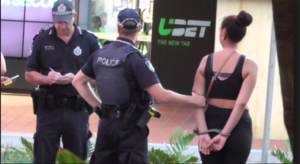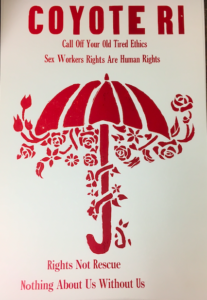As far “Super Bowl Weekend – Where Sex Traffickers Win” by Vednita Carter,
Why are Swerfs (Sex worker exclusionary radical feminism) and Terfs ( Trans-exclusionary radical feminism so willing to throw poor women under the bus just so they can profit off their trafficking NGOs. Every year we prove that there is no sex trafficking epidemic during sporting events, and every year the trafficking NGOs use this as their fundraising campaign. Talk about harassment in the workplace, if you are a sex worker. #Metoo
#ourlivesarenotyourfundraisingmaterial
Super Bowl Sex Trafficking Myth Gives Good Cover for Federal Security Theater
Minneapolis is being transformed into a police state. Feb 2st 2018
The Super Bowl Sex Trafficking Myth That Just Won’t Go Away-2015
ESPLERP calls on journalists not to help anti-prostitution activists peddle the same old story about Super Bowl “sex trafficking”
San Francisco, CA – January 20th, 2015 – The Erotic Service Providers Legal Education and Research Project (ESPLERP) today called on the media not to help spread the discredited urban myth that there is an increase in sex-trafficking around major sports events such as the Super Bowl.
The San Francisco Bay Area is gearing up for Super Bowl 50 at Levi’s Stadium in Santa Clara, CA. Over the next few weeks, tens of thousands of football fans, and thousands of members of the media will be in town for the event. And anti-prostitution activists are busily spreading the story that there will also be an influx of tens of thousands of sex traffickers, pimps and trafficked prostitutes.
This story has been a recurring one at Super Bowls – and for other major sports events such as the Olympics. But there is zero evidence that it has ever happened. For example, Snopes judged the notion that “each year the city hosting the Super Bowl is inundated by an influx of prostitutes” to be Mostly False. Further, the Global Alliance Against Traffic in Women (GAATW) concluded in a report: “There is no evidence that large sporting events cause an increase in trafficking for prostitution“.
But despite this complete lack of evidence, the FBI is still planning on mounting an operation to combat trafficking at Super Bowl 50. It claims that this will be a softer, victim-centric approach that relies on nonprofit groups such as the Polaris Project to make initial contact with the women before the agency steps in.
The FBI is very unlikely to catch any traffickers or trafficked victims. But if history is any indication,they will certainly entrap adult sex workers and their clients in sting operations. And to add insult to injury, the FBI and their nonprofit partners will provide no services whatsoever to the arrested sex workers. The US is funding anti-trafficking groups to the tune of $686 million annually, but most of that money goes to “creating awareness on sex trafficking” and paying their board members six figure salaries. Hardly any of that money goes to the people they claim to be rescuing. Indeed the Polaris Project has stated that they do not provide direct services to “victims”.
“I am outraged that the Polaris Project gets millions a year in funding, to create policies that violate the human rights of sex workers, and put them at great risk of violence, often from the police during the raids they claim are rescues” said Bella Robinson, a board member of ESPLERP. “#endhumantrafficking is a scam and it’s one of the biggest criminal enterprises I have ever seen. And it is all supported by our tax dollars.”
The anti-trafficking movement has a vested interest in keeping the “trafficking increase at the Super Bowl” myth alive. It’s not about rescuing and helping trafficked victims. It’s about keeping the grants flowing. And responsible journalists shouldn’t be helping them spread their misleading claims.
Maxine Doogan, President of The Erotic Service Providers Legal, Education and Research Project (ESPLERP) is a diverse community-based coalition advancing sexual privacy rights through litigation, education, and research.
There are mountains of evidence debunking the super bowl sex trafficking myths


